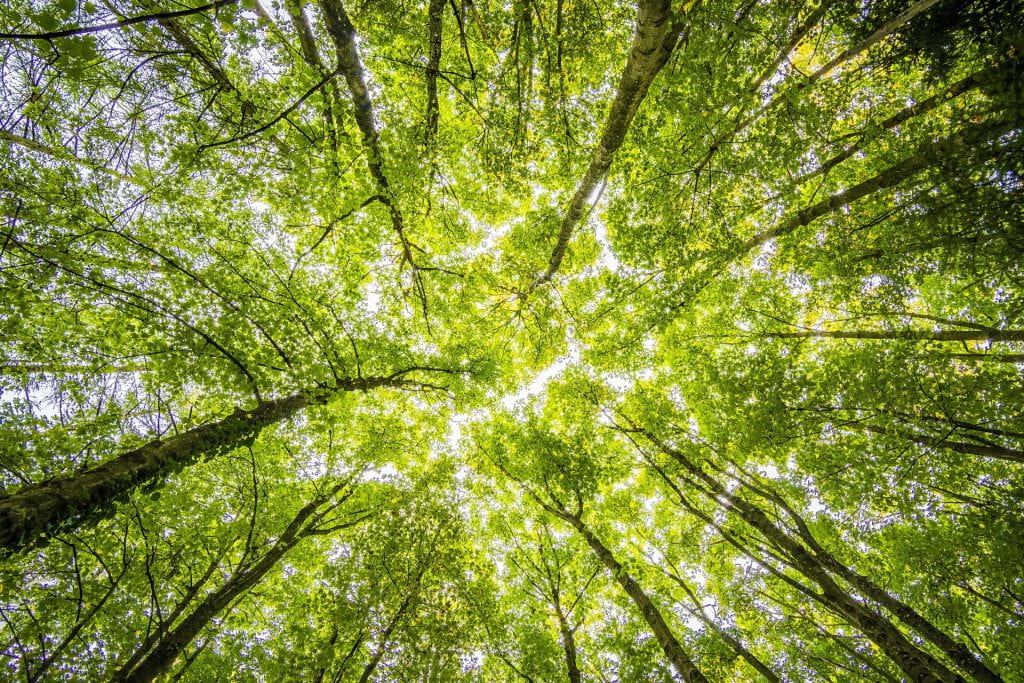by Megan Cuzzolino, Ed.D. (NLL Senior Project Manager)
—
Elena is a gate agent at a large international airport. Most of the time, she is too busy with the hustle and bustle of daily tasks to reflect on the broader purpose of her work. Yet occasionally, when she looks at the flight pattern map, she is struck by the fact that she plays a small but meaningful role in a massive, complex system that transports millions of travelers all around the world.
Martin, who works for a landscaping company, spends most of his time outside engaged in challenging physical labor. Though the work can be difficult, he likes when his days start early, because he has the chance to appreciate the quiet peacefulness of nature at dawn.

The emotion of awe has become an increasingly popular topic of interest for social science researchers over the past two decades. We often think of awe as a momentous, all-encompassing emotion that can only happen on rare occasions in one’s life, such as when we visit a natural wonder like the Grand Canyon or witness the birth of a child. However, milder forms of awe also exist and can be elicited with greater frequency and less effort, through experiences such as exposure to nature, feeling a sense of mindfulness or presence, or learning something new and perspective-shifting. A small but growing body of research makes the case that these milder forms of awe can and should be elicited in the context of work.
Several years ago, I conducted interviews with 30 professional scientists to find out whether, and in what ways, awe played a role in their work. Three key findings emerged from this research. The first was that the participants defined awe as having a deep association with the process of scientific discovery: their definitions and examples of awe in science were largely derived from new realizations or “a-ha moments”. Some of these moments came from big conceptual understandings, like scientists who described being floored by learning about complex ideas like the genome or relativity for the first time. Notably, however, the examples that were top of mind for most participants and that seemed most powerful came from their own personal experiences of discovery.
The second finding was that participants’ awe experiences were connected to their membership within the scientific community. In talking about their moments of discovery, participants recognized that their work was contributing to a larger body of knowledge, even if it was in a very small way. Even though many of these scientists valued the experience of briefly being the only person on earth to know something, ultimately, they also derived awe from the opportunity to share their findings and participate in the broader scientific enterprise, not just within their own department or discipline, but as part of a vast human endeavor that has been carried out all over the world, across thousands of years.
Finally, when asked about the significant impact of these experiences, participants resoundingly agreed that the main effect was about motivation – experiences of awe in science are one of the reasons that scientists persist in their work in the face of challenges and frustrations. A number of participants described awe as a source of “fuel.” As one participant explained, “having those experiences is what makes the work worthwhile.”
Critically, participants positioned these moments of awe as being in tension with the daily grind of their work as scientists. As many participants framed it, the work of being a scientist is quite difficult. The pay is low, the hours are long, much of the day-to-day work is quite tedious, and there are significant institutional pressures to obtain funding, publish, and get tenure. Yet, as one participant explained, “that’s the driver for a lot of what gets you through. You need those awe moments to propel the rest of it. There’s so much drudgery, that if you don’t hang onto those moments, I don’t know what else you hang on to.” Or, as another put it, “Awe – or at least that sense of discovery, and kind of hoping for that awe – is sort of the only reason that you can survive in science.”
Of course, this research focused on a very specific population, so the generalizations we can make are limited. However, as I extend this research, I will be asking three key questions of professionals in other fields. As you read these questions, consider how you might respond by reflecting upon your own profession.
1. What does the relationship between awe and discovery look like in your field?
There is certainly a particular kind of discovery process that is unique to the discipline of science, but the broader experience of discovery can happen in many different contexts. Think about times in your personal or professional life where you were pursuing a burning question, or where you were really driven by genuine curiosity rather than just going through the motions. If we can let ourselves be open to evidence that might be contradictory to our existing understanding, and to embrace the way that this process is emotionally engaging rather than resist it, how might that shift our experience?
2. How can the search for awe keep you motivated? (And what, if anything, is preventing you from experiencing awe?)
The relationship between awe and motivation is an important one, and one that can likely translate to any field where the days are long and the work is taxing. The scientists in this study described a sense of “chasing” moments of awe in their work, and reported that the hope for the next awe experience was a key component in motivating them to continue through hard times. Yet, critically, they also talked about ways in which the institutional norms and constraints of science prevented them from experiencing awe as much as they’d like – something that has implications for those of us in other fields as well. How can we be more attuned to opportunities for awe so that we can use them as a source of motivation? And at the same time, particularly for those with some institutional power, what are the systemic barriers within our field that limit our access to awe experiences? For the scientist study, this included things like pressures to secure funding and to publish certain kinds of work, which prevented people from pursuing the kinds of riskier or more unconventional research that might be more likely to lead to moments of awe. Is there a parallel set of expectations or constraints in your field, and can anything be done about them?
3. In what ways are you part of something larger than yourself?
Participants in this study described themselves as being part of a vast community of scientists, spanning the globe and stretching out over generations. Even for these experts, who are at a level where their research is making genuine contributions to the field, they talked about how their awe experiences came less from the implications of their individual results and more about how the work is contributing to the scientific enterprise writ large. So, what does that mean in our own professional contexts? What is the broader endeavor to which we’re contributing? What does impact mean when we think about it not at the level of the individual but at the level of the networks or systems that we belong to? Can we derive a sense of awe from the perspective of being part of an international, intergenerational community?
In the months ahead, the Next Level Lab will be exploring some of these questions through a research project on experiences of awe and the purpose of work. We look forward to reporting on our findings down the road, and we encourage you to get in touch if these ideas have resonated for you in your own professional context.
